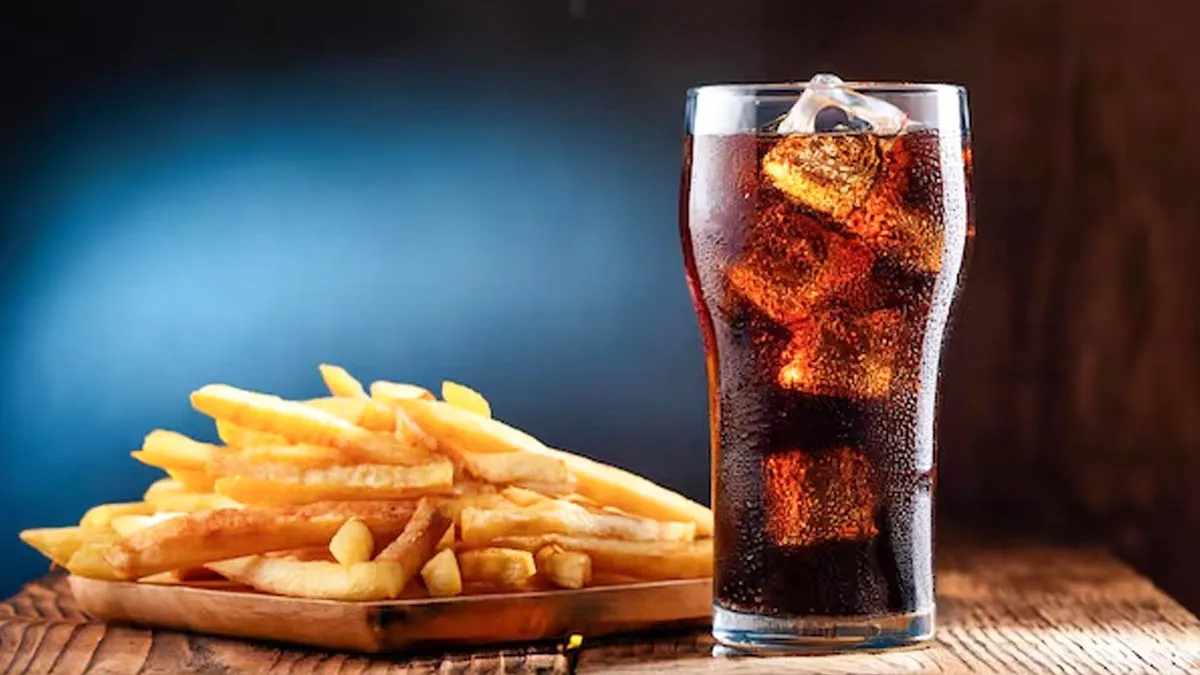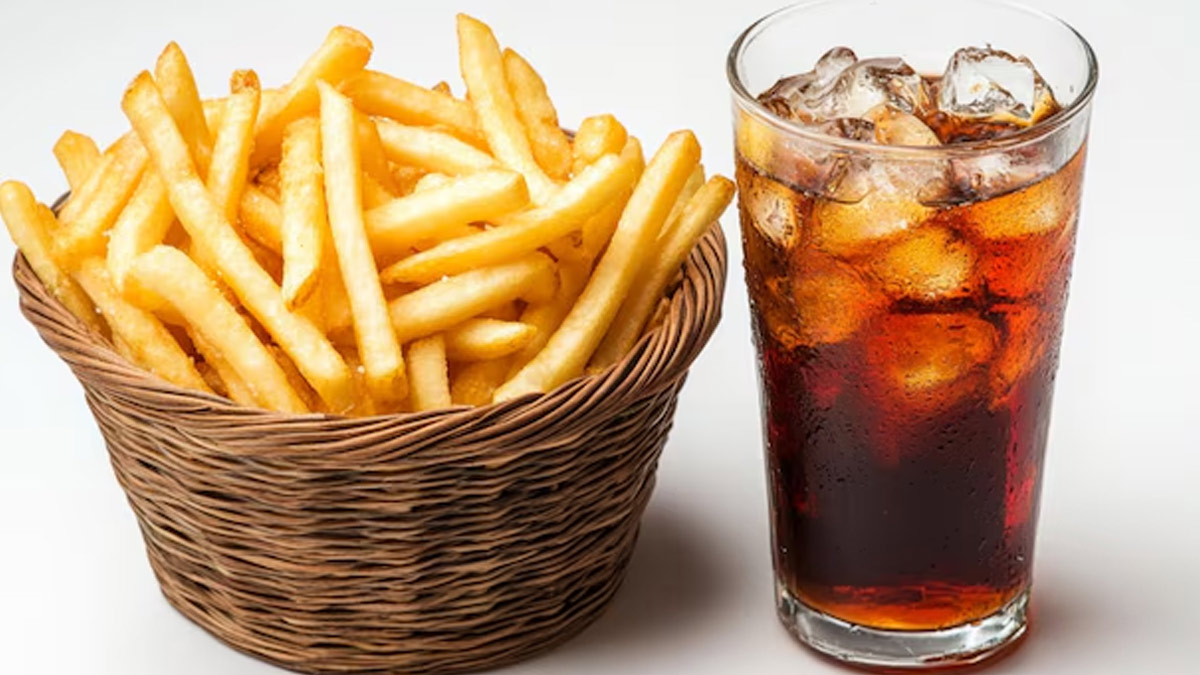
Headaches are one of the most common health conditions experienced worldwide. There are over 200 recognised types and subtypes of headaches, of which migraine stands apart as a significant public health concern. Not only is the prevalence of the condition high, but it also has a debilitating impact on the patient's quality of life and an economic burden. Basically, it is not just a painful condition with no cure but a disabling neurological disorder that significantly impacts daily life and productivity.
Table of Content:-
Therefore, for someone living with migraine, every claim about relief or management counts. That’s why the recent "McMigraine meal" trend making the rounds on social media platforms like TikTok has caught so much attention. Promoted as a fast-food combination that supposedly helps ease migraine symptoms, it has sparked both curiosity and scepticism among people desperate for relief. The OnlyMyHealth team spoke to an expert to get to the truth.
Also Read: What Causes A Headache At The Back Of The Head?
Understanding Migraine And Its Impact On Overall Quality Of Life

Migraine is a complex neurological condition that can turn a regular day into a struggle. Along with intense, throbbing pain, many people also feel nauseous or may even throw up. Bright lights and everyday sounds can suddenly feel unbearable.
For those who live with it, a migraine can mean missing work, cancelling plans, or simply being unable to get out of bed. It’s a condition that quietly affects not just the body, but every part of daily life.
Worldwide, migraine accounts for an estimated 14–15% of global prevalence and contributes to 4.9% of all years lived with disability. According to the Global Burden of Disease 2021 study, approximately 22.3 crore people in India were affected by migraine in 2021, highlighting its widespread impact.
Does The Cola-Fries Combination Help Relieve Migraine Headaches?

If you're hearing about the McMigraine meal for the first time, it has two primary components: a standard cola and salty fries.
A video that recently surfaced and garnered over 50 lakh views read, “Trying McDonald’s chips and a Diet Coke because I’ve had a headache for 48 hours and TikTok said it would help.” The creator confirmed in the caption that the hack actually worked. And similarly, many on the internet swore by the health tip.
In an interaction with the OnlyMyHealth team, Dr Shruti Vadke, Consultant Neurologist, Manipal Hospitals, Baner, Pune, said, "We all know that internet health hacks can be unreliable, but this one may have some basis in science. One large serving of coke has enough caffeine that can stop a migraine attack."
This is because caffeine acts as a vasoconstrictor, i.e., it narrows the blood vessels which are dilated during migraine episodes. On the other hand, the fries contain salt and carbohydrates. While the salt can ease symptoms due to dehydration, carbohydrates can help to an extent if hunger has triggered the headache.
Also Read: Migraines During Menopause: Causes, Triggers, And Treatment
There have been studies that have claimed that sodium-rich diets reduce the chances of migraine attacks. A 2016 study published in Headache: The Journal of Head and Face Pain found that people who ate more sodium (salt) each day were slightly less likely to report having migraines. This link remained even after accounting for factors like age, weight, and gender. Interestingly, the effect was more noticeable in women with lower body weight.
However, this doesn't mean eating salty foods will prevent migraines. In fact, there has been research that associates salty diets with long migraine headaches.
The Health Hack Works But The Effect Is Only Temporary And Unreliable

While Dr Vadke and many other neurologists around the world suggest that the cola-fries combination may have some relieving effect for migraine patients, the doctor says that such ways can be of temporary help and are certainly not a cure.
"Migraine is complex and can't be cured by such meals of caffeine, salt and sugar. In fact, caffeinated drinks like colas should never be used as a regular way to manage migraines. In the long run, too much caffeine can actually trigger more migraines and make the condition worse," Dr Vadke emphasised.
He added, "The effects of sodium in the salty fries on migraines have not been tested. Also, these fast foods are ultra-processed and deep-fried and lack nutrients, making them extremely unhealthy food choices. Fast foods are also high in thiamine, a compound which can trigger migraine episodes."
How To Really Relieve Migraine
Instead of relying on such a temporary and unreliable solution to ease migraines, it's better to consult a doctor and seek effective, reliable and safe solutions.
According to Dr Vadke, preventive medications can help immensely to reduce the frequency and severity of migraine attacks. Lifestyle changes such as ensuring adequate sleep, staying hydrated, avoiding hunger, ensuring to follow an active lifestyle by exercising regularly and avoiding triggers also significantly reduce the severity of conditions.
Whenever the spells become debilitating, it's best to contact your healthcare provider and seek proper advice.
Conclusion
While a caffeinated cola and salty fries may be a convenient solution to ease migraine headaches, it is not the type of treatment you should be counting on. While it may provide temporary relief to some, it isn't a cure. Instead, frequently debilitating headaches require proper, long-term treatment and should be managed under the guidance of a healthcare professional.
Also watch this video
How we keep this article up to date:
We work with experts and keep a close eye on the latest in health and wellness. Whenever there is a new research or helpful information, we update our articles with accurate and useful advice.
Current Version